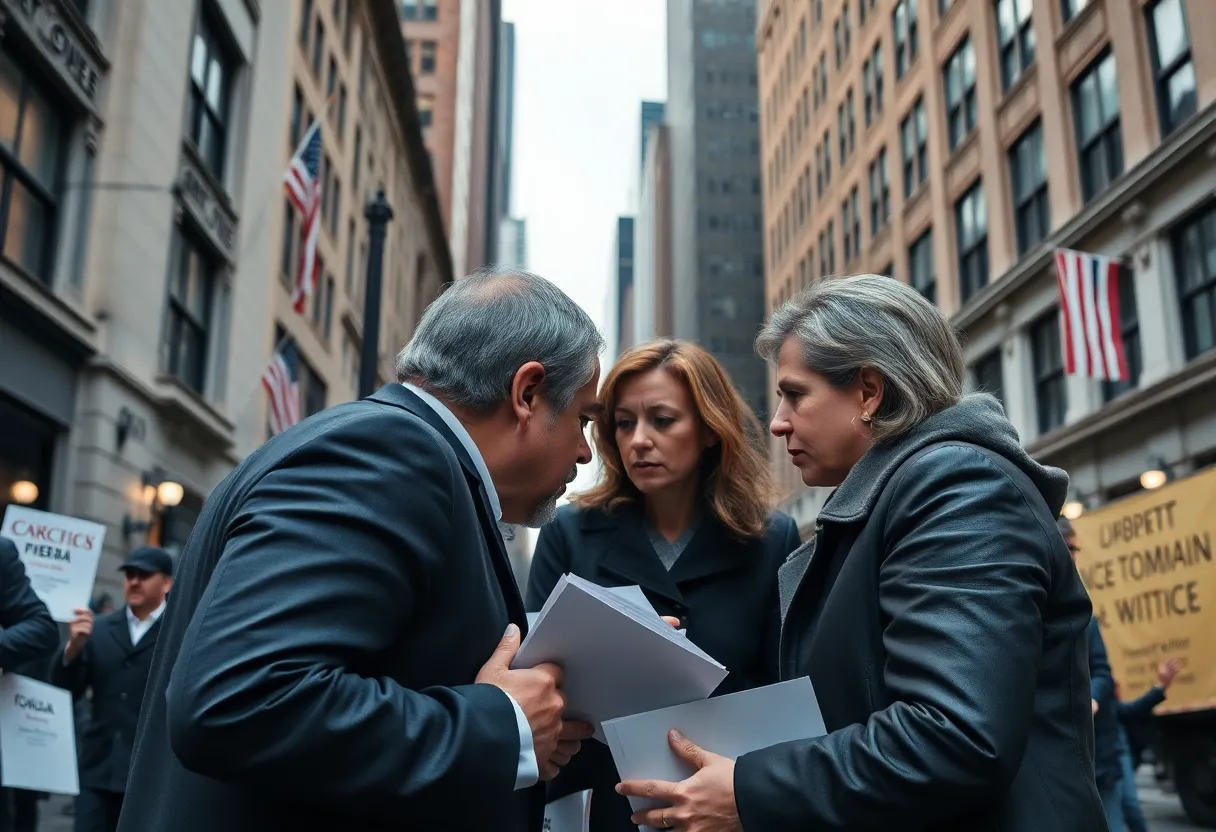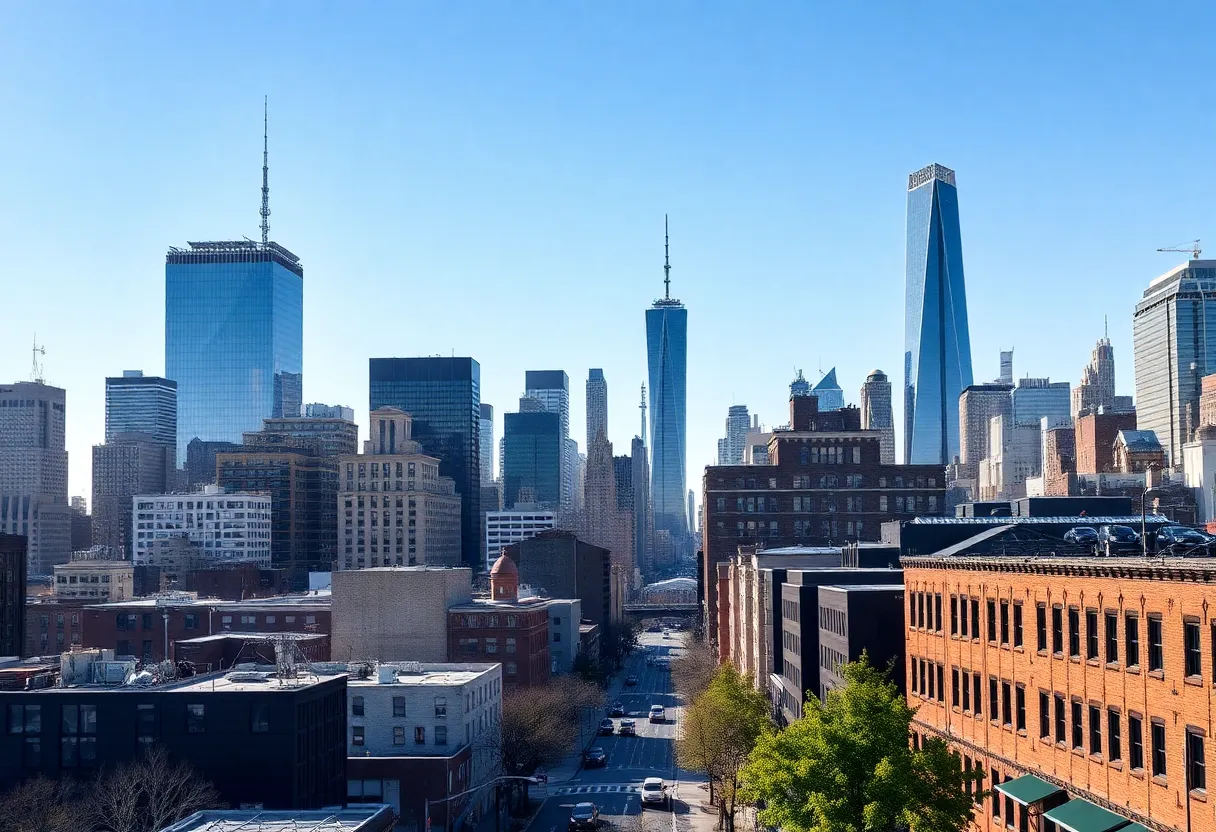News Summary
New York City is facing difficulties in reaching a budget agreement as progressive groups rally against Governor Kathy Hochul’s proposals related to involuntary commitment and discovery reform. Advocates argue that these changes could jeopardize due process and harm vulnerable populations, while some lawmakers assert that the existing discovery laws create challenges for prosecutors. As tensions rise and negotiations stall, the focus remains on ensuring justice and equity for marginalized communities in the potential reforms ahead.
New York Budget Talks Stuck in the Mud Over Progressive Pushback
New York City is buzzing with activity as progressive groups rally to halt Governor Kathy Hochul’s latest budget proposals, particularly those related to involuntary commitment and discovery reform. Tensions are running high as lawmakers scramble to reach an agreement, now well past the April 1 deadline, and the coming weeks hold significant stakes for the city’s most vulnerable populations.
Progressive Groups vs. the Governor
The Legal Aid Society, joined by a coalition of other advocacy groups, is adamantly urging state lawmakers to reject Hochul’s budget initiatives. They allege that the governor is trying to sneak her policies through the budget process, particularly changes to the modernized discovery statute. This new proposal has raised eyebrows and sparked heated debates across the board.
Concerns stem from the belief that rolling back discovery reforms could hinder due process for criminal defendants. Critics argue that such moves might serve to empower prosecutors while putting the rights of the accused in jeopardy. This has led to significant pushback from groups like The Legal Aid Society, which claims it plays a vital role in supporting up to 2 million residents annually, thanks to approximately $290 million in state funding since 2012.
A Clash of Perspectives
On the flip side, some state legislators, such as Senator George Borrello, suggest the Legal Aid Society is caught in a conflict of interest. They argue that the existing discovery laws, which require quick evidence disclosure, complicate things for the under-resourced district attorneys; a sentiment echoed by the New York City’s district attorneys who throw their support behind Hochul’s proposals. They believe limiting evidence disclosure can streamline the legal process.
However, progressive activists are deeply concerned that these changes could likely lead to an alarming increase in wrongful convictions. For instance, since implementing current discovery laws, convictions for domestic violence cases have plummeted from 31% to a mere 6%. This trend sparks further worry about the implications of altering disclosure requirements.
Concerns About Mental Health Proposals
The budget impasse stretches beyond just discovery reform. Hochul’s proposals around involuntary commitment are also facing substantial opposition. Groups like the Mental Health Association in New York State argue that existing legal frameworks for mental health are sufficient, and changes could inadvertently harm vulnerable populations seeking mental health assistance.
Pushback is growing among lawmakers as well, with Assemblyman Harvey Epstein highlighting that negotiations have stalled largely because there is insufficient clarity in the proposed changes. Hochul’s administration maintains that she remains steadfast on her principles concerning both discovery and mental health reforms despite the ongoing debates and delays.
An Uneasy Negotiation Landscape
With the stakes climbing higher every day, The Legal Aid Society is advocating for the inclusion of public defenders in discussions concerning discovery laws. They argue this representation is essential to avoiding unjust policies that may occur without adequate defense input. The Bronx Defenders have described the atmosphere around the negotiation process as heavily tilted favorably towards prosecutors—leaving defense attorneys sidelined.
While a tentative deal regarding revisions to New York’s discovery laws appears on the table, the specifics are shrouded in uncertainty, leaving stakeholders dissatisfied. Currently, the discovery law mandates that prosecutors share evidence promptly with defense attorneys, a critical safeguard aimed at preventing wrongful convictions and ensuring fair trials.
The Road Ahead
As negotiations heat up and time ticks away, the implications of each decision loom large over New Yorkers. Advocates are heavily invested in ensuring that justice and equity remain front and center in any reforms introduced. The coming weeks will prove everything in shaping the future of justice for marginalized communities in the city and beyond.
Deeper Dive: News & Info About This Topic
- AMNY: NY Public Defenders Urge Reforms
- Wikipedia: Discovery (Law)
- NY Times: Discovery Judges Law in NY
- Google Search: Discovery Law New York
- City and State: Opinion on Discovery Rollbacks
- Google Scholar: Discovery Reform New York
- Yonkers Times: Changes Needed to 2019 Criminal Reforms
- Encyclopedia Britannica: Criminal Justice
- Spectrum News: Discovery Reform Critic
- Google News: New York Criminal Justice Reform








